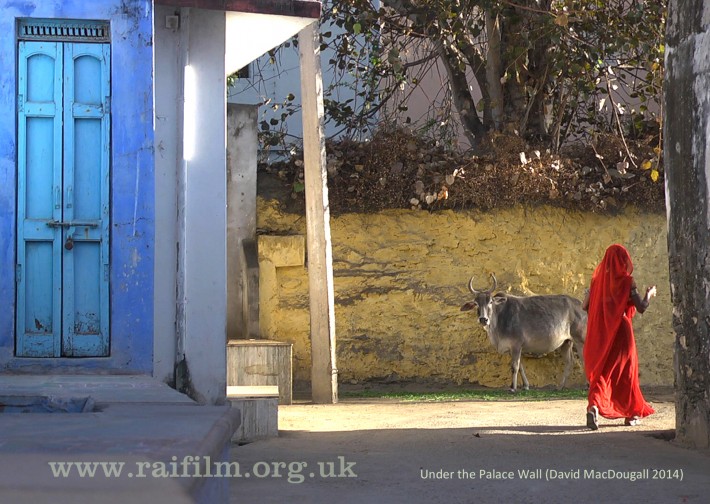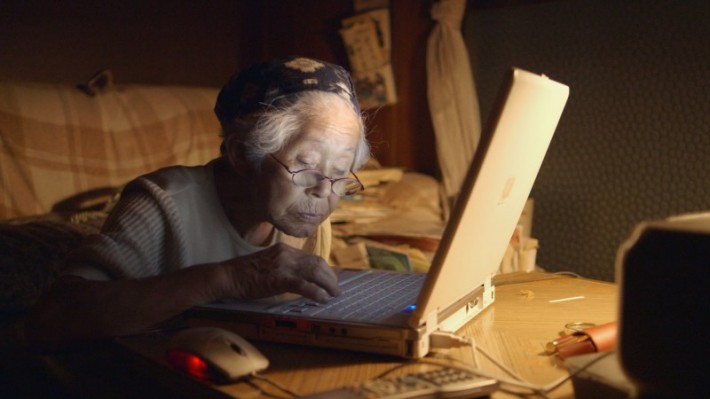Royal Anthropological Institute
The Royal Anthropological Institute of Great Britain and Ireland (RAI) is the world’s longest-established scholarly association dedicated to the advancement of anthropology (the study of humankind) in its broadest and most inclusive sense. In particular, the RAI is committed to promoting a wider understanding of anthropology, and the contribution of anthropology to public affairs. It publishes journals, has a film and video library and an extensive photographic collection, gives awards for outstanding scholarship, organises lectures and meetings, and manages a number of trust funds for research. We spoke to Caterina Sartori, who is responsible for the film information service and the film festival.
How long have you been around and what are the main activities you undertake?
The work of the RAI stretches back more than 150 years, and the Film Library was set up in 1971. By 1981, the collection contained 90 anthropological films on 16mm that were hired out for educational screenings within the UK. Since then the library has gone through many changes and has grown considerably: we now distribute over 500 documentary films worldwide and our reference library holds several thousand titles.
In 1980, the RAI Film Prize was established to encourage anthropological filmmaking, and this led to the development of the RAI Film Festival (previously known as the RAI International Festival of Ethnographic Film), which has been running biannually since 1990 and is now one of the most important in the field. It is held at the Watershed in Bristol and the next edition will take place 27-30 March 2019.
What are your main subject areas and specialisations?
Our first print catalogue from 1981 states that ‘the films (in our library) seek to show some aspect of the culture or social life of peoples living in non-industrialised societies – the huge proportion of the world’s population living in small, rural communities who obtain their food largely through their own efforts as farmers, cattle-herders and hunters’. If it was certainly the case at the time that most films in our library dealt with classic anthropological subjects, (from Ian Dunlop’s People of the Australian Western Desert to Chris Curling and Melissa Llewelyn-Davies’ Masai Women, for example), it is also true that our curatorial work has over the years developed in tandem with changes in the discipline of anthropology and in the wider world. The anthropological and ethnographic film field now includes documentaries that have as their subject aspects of social life and culture from all corners of the globe, rural or urban, industrialised and less industrialised, and anything in between, on topics as wide ranging as surrogacy and same-sex families, the effects of climate change and urban development.

Is the content you distribute aimed at a particular educational sector?
Our films are aimed at the secondary education and higher education sectors and we develop teaching resources for schools and colleges. Our main subject area is anthropology, but the wide ranging nature of our collection means that many of our films are of interest for teaching geography, sociology, development studies, gender studies, language studies, history and religion. It is possible to search our collection by geographical area, subject and year of production on our website and our Film Officer is also available to give advice.
Is your material available to stream/download as well as in DVD format?
We distribute over 500 documentary titles, both on DVD and online. We are also about to launch an on-demand rental service, RAI Player, with a selection of our most popular films. Our reference library holds several thousand titles, which can be viewed on site.
Could you pick a few titles from your collection that encapsulates what you are all about?
Our collection includes, for example, a film made collaboratively with Yolngu Aboriginal families in Australia that offers glimpses into their lives and relationships through their choice of ringtones, which include everything from ancestral clan songs to 80s hip hop artists and local gospel tunes (Ringtone, Jennifer Deger and Paul Wunungmurra, 2014); a documentary about the 1945 atomic bombing of Hiroshima seen through the lives of doctors and nurses, made during the Fukushima disaster (The Day the Sun Fell, Aya Domenig, 2015); a film on the way the expansion of Boko Haram is experienced on the ground by a family from northern Cameroon (Living with Boko Haram, Trond Waage Mouzamou Ahamadou, 2016). We of course continue to preserve and distribute the classics of the discipline like Amir – An Afghan Refugee Musician’s Life in Peshavar, Pakistan, made in 1985 by ethnomusicologist John Baily and recently remastered from the original 16mm print, and The Disappearing World Series. We are very proud to distribute the entire oeuvre of the legendary David MacDougall, from To Live with Herds (made in 1972 among the Jie, a semi-nomadic pastoral people living in North-eastern Uganda), to Under the Palace Wall (2013), an observation of a primary school in a village in Rajasthan, India.
Details of the RAI film releases can be found on Learning on Screen’s Find DVDs database bufvc.ac.uk/dvdfind, as well as the RAI Films website: raifilm.org.uk/films. The RAI Player can be accessed at: https://raifilm.org.uk/rai-player/

The Day the Sun Fell (2015, image courtesy of RAI Films)
 Learning on Screen
Learning on Screen